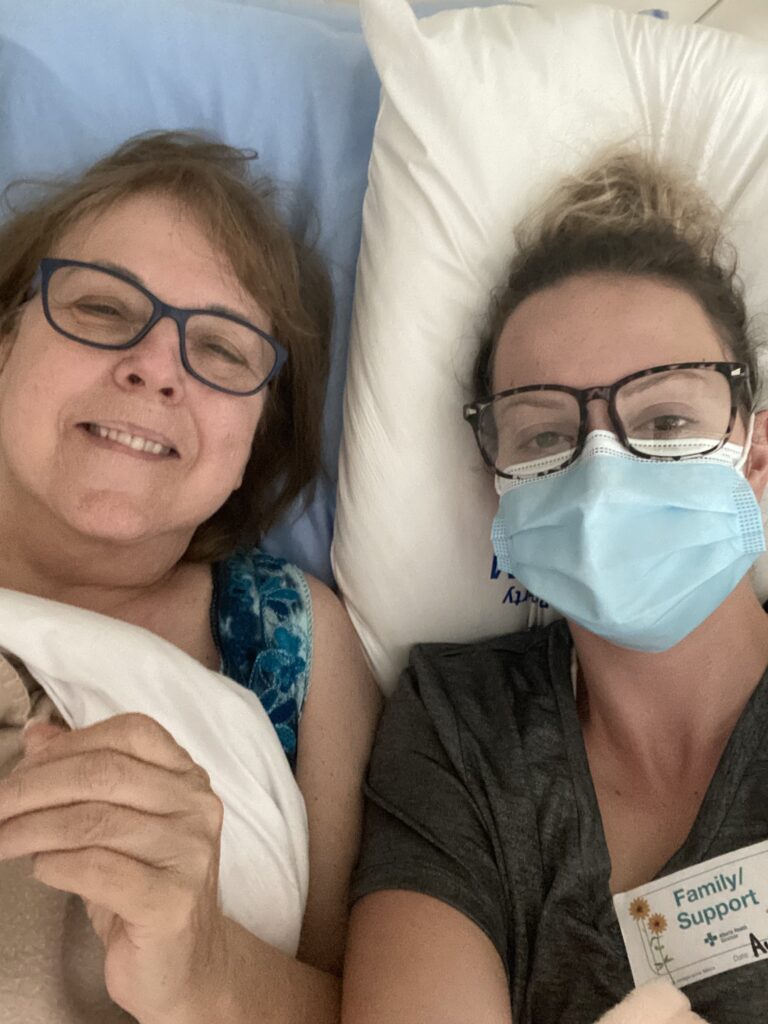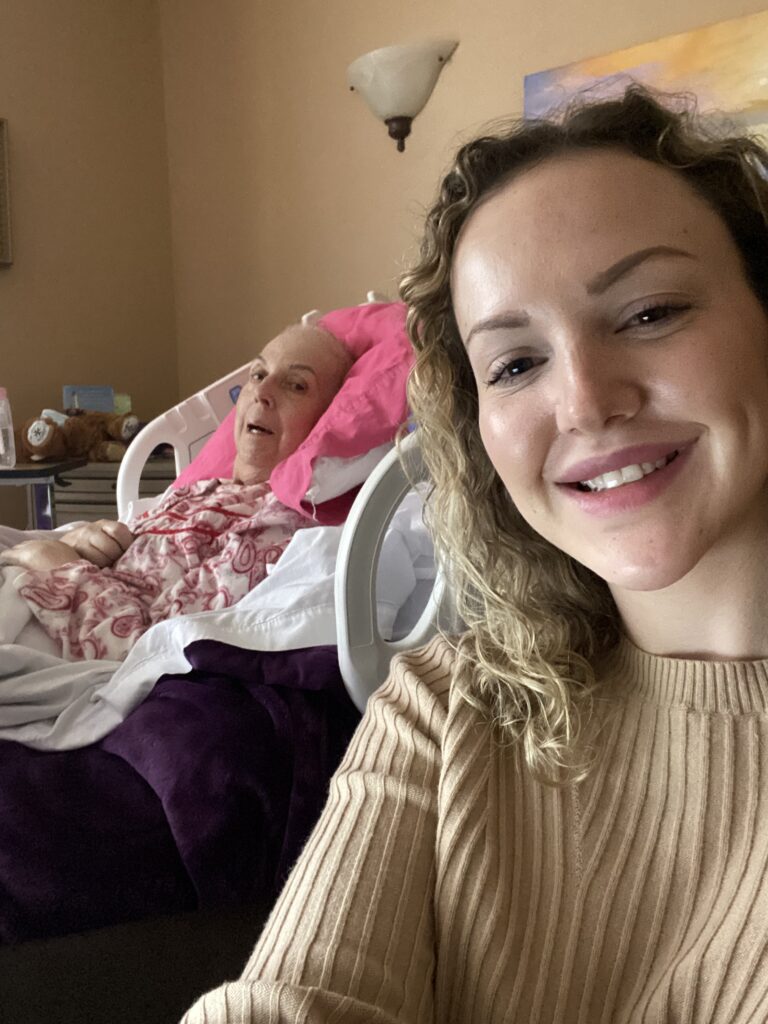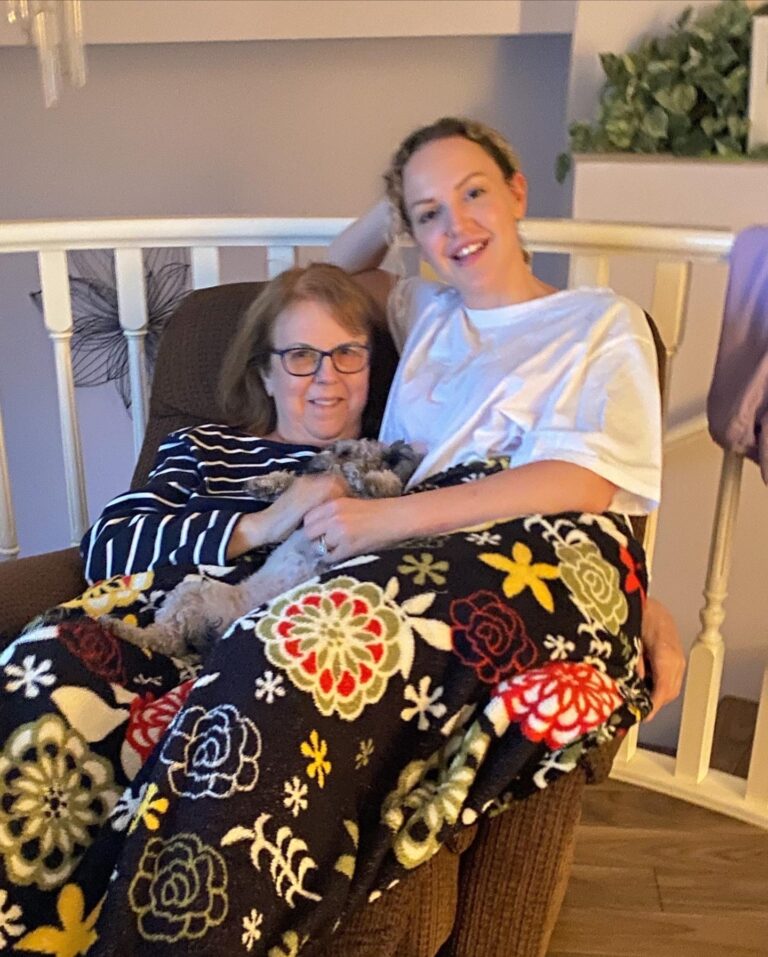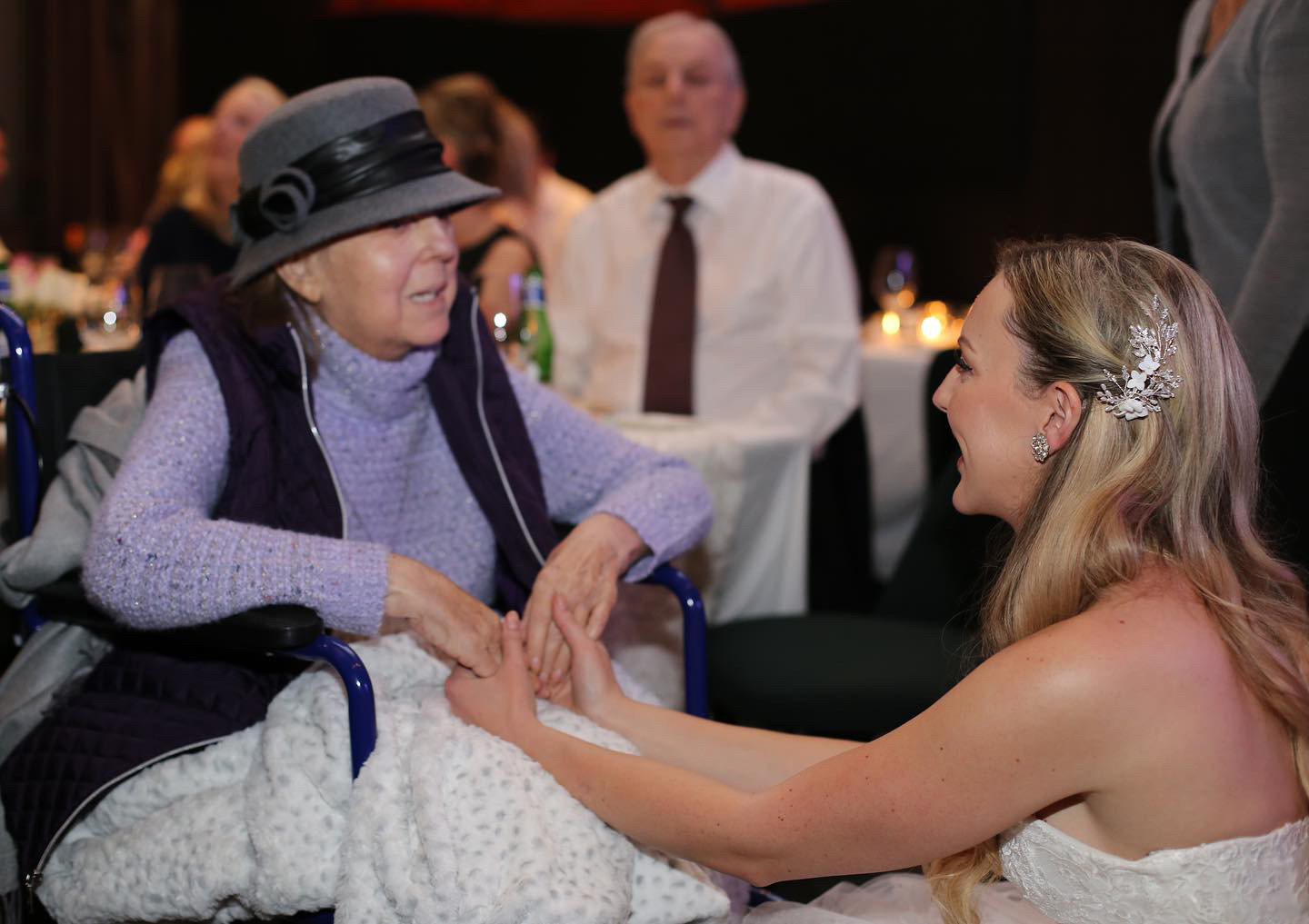Today marks the two-year anniversary of my Nana’s passing, I’ve been reflecting on my caregiving journey and how that experience has influenced my path since then.
On the Friday of August long weekend in 2021 my Nana was taken to emergency after we had noticed memory and speech issues. We thought it was low blood sugar, early dementia, a stroke at the worst, whatever it was could surely be treated. She was only 75, she lived alone, was independent, and despite seeing the signs of old age begin to show, we had every reason to think we would have years, maybe decades with her.
After hearing she was admitted to a room for further testing, a lump formed in the pit of my stomach. With the covid protocols at the hospital I knew I wouldn’t be allowed in, but I felt a pull in my chest to be close. My Nana was my best friend. Growing up with a single mother she was my second parent, there from day one. We’d lived with her for periods during my childhood and after high school I moved in while going to university. We often talked on the phone, I stopped by her house several times a week, and she was always there when I needed a ride, a favour, to know how to boil an egg, or assurance that the chicken I had prepared was thoroughly cooked.
When I got to the hospital my mom texted me to let me know I could come in, which felt odd knowing how strict social distancing still was at that point. When I walked into the lobby, I saw her face and instantly knew something was seriously wrong. Stage 4 cancer. Months to live. The words hit hard and felt like the end of the world. I wasn’t ready to live without my Nana. I wasn’t ready for what was next.

That day began the most difficult and transformative journey of my life. She went downhill very quickly, losing the ability to talk within weeks, then losing the ability to walk shortly after. Before long she had lost the ability to do almost anything for herself. As a family we were very lucky to have non-traditional work and flexible schedules. Between the family we were able to rotate and provide constant care for her. Despite having this dedicated time, the cracks quickly started to show. There were dozens of pills a day, appointments, and friends and family calling for updates. Hours were spent navigating the health care system, adapting the house to fit her rapidly declining condition, and advocating for her needs.
How were other people doing this? What if her kids had lived far away and an elderly husband was left to navigate through this mess? It seemed like an impossible amount of work for any family less equipped than ours.
The opportunity to care for her in those last months was one of the greatest blessings of my life and I would do it again and again, but it began to take its toll on my mental health. Anticipatory grief had me caught in a never-ending conflicting thought spiral. I cherished each moment but wanted it to end. I didn’t want to see my favorite person in the world sick, shrinking down to skin and bones. I didn’t want to feel the constant pit in my stomach knowing time was racing forward towards an ultimate ending that I wasn’t ready for, yet I craved a release from the stress, knowing the only way it would end would be the hardest day of my life.

The stress came to a breaking point in the weeks leading up to her passing. I worked a high stress job and was spending more and more time at the hospice, desperate to soak up our remaining time. I worked from her room when I was able to, or would drive over after work, spending the evenings watching TV from her bedside. The frustration and helplessness I felt began seeping to the surface in my interactions with friends and coworkers. My temper was short, and I was unable to cope with minor stresses without becoming completely unglued.
Sitting next to her hospice bed one morning I received a call from my boss with HR on the line. They had decided to go in a different direction which didn’t include me. My stuff was packed up and dropped at my house that night.
The news hit me hard—I was completely caught off guard and felt a profound sense of betrayal. I had dedicated myself fully to my job, thriving on the challenges it presented. Now, reflecting on the countless hours invested working, it all seemed like a tragic waste of the precious time I had left. I felt it had all been for nothing. I was devastated on so many levels and it further distracted me during a time I was trying my best to be present.
Relatively speaking, my journey was short. Just 7 months from that day in the hospital, to the final day in the hospice where my mom and I held hands while Elvis Presley’s Love Me Tender played on my phone as she took her last breath.
In the years since this experience, I have learned so much about the realities of what Family Caregivers face. There are Caregivers like me, giving their all during short palliative journeys speeding towards an end. Then there are those that live in this reality for years and decades at a time caring for loved ones with prolonged illnesses or injuries. I’ve learned about the intersectionality of how it impacts people of different genders, ethnicities, ages, and socioeconomic statuses. But most importantly I’ve learned about the qualities that connect all people called to the act of caregiving including selflessness, perseverance, and compassion.

I joined Team Carepal in my Nana’s memory, in an effort to prevent the level of burnout I experienced in others. Through this journey I have heard the stories of hundreds of Caregivers and know that this work is more important than ever with the state of our healthcare system and our aging population. I now have a healthier relationship with work and value being present and spending time doing things I love and with the people I love over working long stressful hours for someone else’s dream. Someone please slap me if I ever work from another hospice again!
To all the amazing Caregivers out there, you are seen, you are heard, and all your feelings are valid. To everyone else, this is your sign to learn more about the people around you. One in four Canadians is a family Caregiver and could use your love and support.

This story, deeply etched in love, loss, and the invaluable lessons learned along the way, is my own. I am Paisley Churchill, Chief Product Officer at Team CarePal. Thank you for allowing me to share this part of my life with you.

